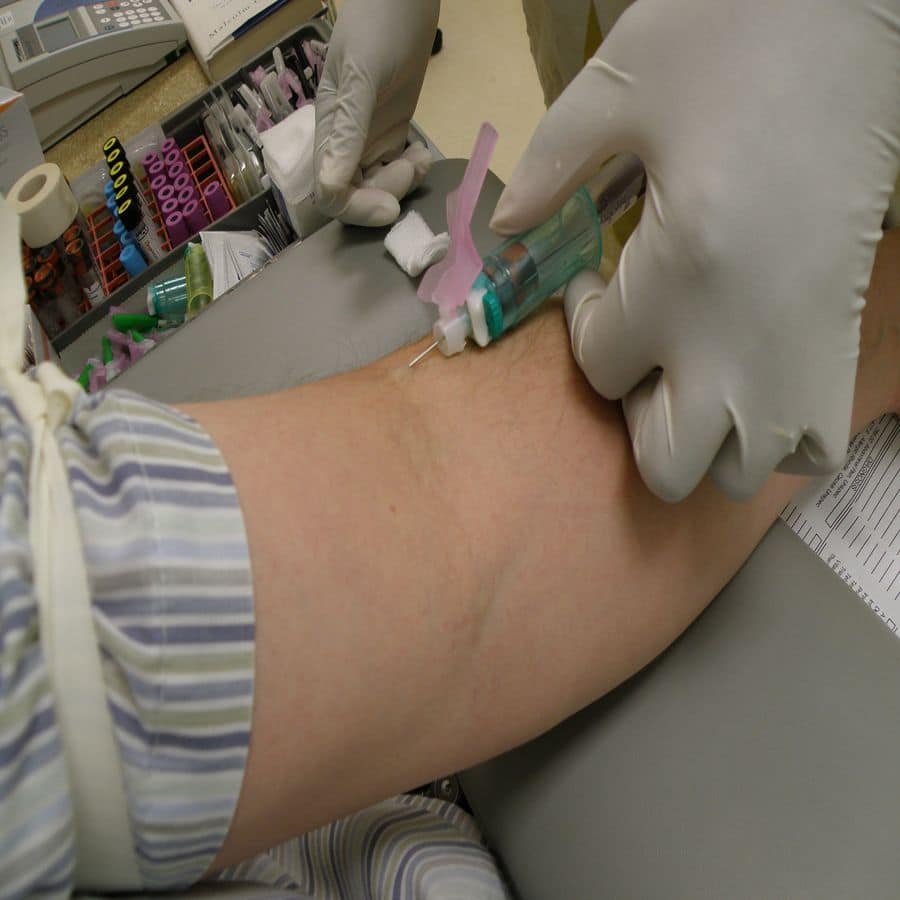Clinical Hypnosis Studies Addressing Aichmophobia


Whether it’s donating blood, receiving a vaccine or receiving complete anesthetic, the process is difficult for almost anybody. And some unfortunate people are particularly affected by the unpleasant process of getting injections, some even going so far as to avoid donating blood or getting scheduled immunizations. Sometimes, it blossoms into a full blown phobia of needles. This particular phobia is known as aichmophobia and is described as an irrational fear of needles and this goes well beyond a simple discomfort. People afflicted with aichmophobia will go without badly needed medical treatments just to soothe their irrational fear of needles.
The hypnotized mind is capable of having more focused attention and awareness, and perhaps most importantly, a greatly increased level of response to the suggestion. While are a number of theories about why hypnosis works, it is undeniable that the state of mind does exist. This state of mind is created through a process called hypnotic induction to numb the patient’s mind through instructions and suggestions. While hypnotherapy has been somewhat controversial over the years, some case studies do exist that imply that the practice may be of some value in treating phobias such as aichmophobia.
In 2010, a 57-year-old homemaker was referred to a clinical hypnotherapy this by her dentist due to her extreme fear of needles. This patient was afraid and had a great deal of anxiety for all aspects of visiting the dentist. This included the “drill”, water sprayer as well as the dentist putting his fingers in her mouth. She had not at a dentist appointment for most of her adult life and now she was faced with extreme surgery without the prospect of taking local anesthesia.
The dentist had tried using value as well as nitrous oxide, but to no avail. During her first hypnosis session, it was discovered that she had a rather frightening experience as a child. Due to her family’s lack of funds, she was forced to go to a public clinic where she witnessed patients crying and bleeding while in the dentist chair. It took less than five minutes for the patient to go into deep relaxation while sitting in a reclining chair to mimic the dentist’s office. The woman was also taught a meditation mantra that she can use whenever she felt a rush of anxiety.
During the patient’s second scheduled hypnosis session, she mentioned that she was still afraid of the dentist using the needle in her mouth, but that the mantra repetitions were helping her relax deeply. It was during this session that the woman became more comfortable relaxing in the reclining chair, she was able to keep her mouth open for thirty seconds and mentioned that she would not have a problem with the dentists performing oral surgery.
Researchers concluded that the combination of meditation and additional relaxation methods were instrumental and helping the patient overcome her anxiety of dealing with the dentist needle. During follow-up, it was discovered that the patient was able to go to additional dentists visits without cause of emotional overwhelm.

A study done in Europe in 2002 used a group of patients who were anxious about dental treatments. Over the course of three years, three treatment groups and a control group of adults aged between 19 and 65 years old were taken. There were three treatment groups; one was treated with hypnotherapy, another group was treated with therapy and a third was treated with systematic desensitization. All three of these therapies were focused on helping the subjects overcome their fear of dental care, which includes quite a bit of exposure to needles. The control group of 65 patients with severe anxiety about dental care was left untreated.
Over the course of three years, the treatment groups were treated with various therapies and when three years were over, numbers were added up. Of the subjects who received hypnotherapy, over fifty percent of the patients were, three years later, reporting that they were regularly visiting a dentist and maintaining regular dental care habits.
Comparing this to the 46.1 percent of the control group who weren’t treated, this is a noticeable difference. Further, the treatment group that received hypnotherapy reported that they were significantly less anxious and had more positive beliefs about dental care than the control group that received no therapy.
Another study, done in 2009, was a bit more unusual, but had wide reaching implications for the treatment of aichmophobia. The scientists behind the study developed a technique they called hypnotherapeutic olfactory conditioning (HOC). While this sounds complex, it’s actually fairly simple. While the patient is undergoing hypnotherapy, they are taught to associate pleasant scents with a sense of security and self-control. The scientists used three different patients with issues relating to anxieties. One case was a combat-induced PTSD sufferer, another was afflicted with a panic disorder and the third was afflicted with a phobia of needles. After receiving the hypnotherapy, all three patients, including the one afflicted with aichmophobia, had associated certain pleasant scents with a feeling of security and self-control. When exposed to these scents, all three of the subjects found that they could successfully deal with their anxieties, including a fear of needles. Training the human mind to change its behavior when exposed to certain stimuli, such as a pleasant scent or specific sound, is a time honored technique of hypnotherapy.
Sometimes numbing the pain and keeping the patient from seeing the needle is enough, but when a case gets severe enough to become a phobia, usually even this is not enough to get people to overcome their fear of needles. In these cases, severe measures must be taken to help a patient get over their irrational fear of needles. As for the case studies above, all highlight ongoing alternative options for the successful treatment of aichmophobia through hypnosis and meditation.


